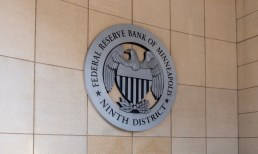Here’s how collaborations can contribute to heightened brand perceptions and what the impacts of that can look like.
Opportunity to Offer Exclusivity
Brand collaborations often result in the creation of exclusive, limited-edition products that can generate buzz and excitement among consumers. This diversification of product offerings allows brands to cater to a wider range of consumer preferences. Limited-edition collaborations are particularly attractive to consumers who seek unique and collectible items, driving demand and fostering a sense of urgency to make a purchase.
As per Harrods, the pop-up is already open, and features exclusive bags and a specially curated ready-to-wear capsule handpicked by creative director Sophie Delafontaine, which will only be available until January 25.
Brand collaborations have the potential to redefine how consumers perceive both participating brands. When two reputable entities come together, it often creates a synergy that transcends individual brand strengths. Consumers may associate positive attributes from one brand with the other, resulting in a more favorable overall perception.
Consider another collaborative effort, such as The North Face and Gucci. While The North Face was able to receive exposure to a cohort of consumers who are willing to spend more, Gucci was able to access a demographic that may not have been as familiar with luxury fashion but has now been exposed to Gucci’s offerings through the collaboration. This partnership also enabled Gucci to diversify its product line by integrating The North Face’s expertise in outdoor and performance wear.
Advertisement: Scroll to Continue
More for Consumers to Shop
In addition to offering exclusivity, collaborations often introduce consumers to a broader array of brands and their respective products. A recent instance of this is the collaboration involving Stanley, Starbucks and Target.
According to published reports, this collaboration led to significant consumer interest, even resulting in stampedes.
As PYMNTS reported, the collaboration successfully brought customers to Target, which is quite significant during a time when people are careful with their spending. In this situation, those who really liked any of the brands involved were more likely to shop and explore the store as they ultimately ended up at the main display to get the sought-after tumbler.
Read more: Would You Brave a Stampede for Love or a Stanley Cup?
Partnership Success
In May, PYMNTS reported that Skims, the brand founded by Kim Kardashian, known for its offerings in underwear, loungewear, and shapewear, broadened its retail presence by collaborating with the upscale department store Saks Fifth Avenue, aiming to fulfill growing consumer demand.
The move not only made its products accessible to Saks customers, but also created an additional touchpoint and access avenue for devoted Skims enthusiasts. That said, Kim Kardashian has consistently demonstrated a strategic approach to pop-up openings, including Selfridges in London and Rockefeller Center in New York. These pop-ups serve as testing grounds to pinpoint potential successful locations for permanent establishments.
Regarding the collaboration with Saks, Jens Grede, Kardashian’s business partner and CEO, shared with Forbes that beyond serving 2.6 million customers in 2022, resulting in the sale of 12.5 million items, Skims aims to tackle its continually expanding waitlist. Grede highlighted that in the previous year alone, Skims experienced over 11 million signups on the waitlist.
Beyond strategic shop-in-shop experiences, PYMNTS wrote: “Skims has transcended its origins as a brand solely backed by Kim Kardashian or an influencer-driven brand, thanks to its strategic marketing efforts. The brand has collaborated with emerging and niche music artists, partnered with the Special Olympics, and enlisted celebrities such as Snoop Dogg, Brooke Shields and Chelsea Handler as brand representatives. These initiatives, as well as the expansion of Skims overseas, have contributed to the brand’s 2022 valuation of $3.2 billion and has helped Kardashian attain billionaire status.”
During the assessment period, Skims experienced a 90% surge in sales, reaching nearly $275 million in 2020, with projected sales for 2021 expected to reach $400 million.
And since, PYMNTS reported that Kim Kardashian’s business empire had reached $4 billion.




